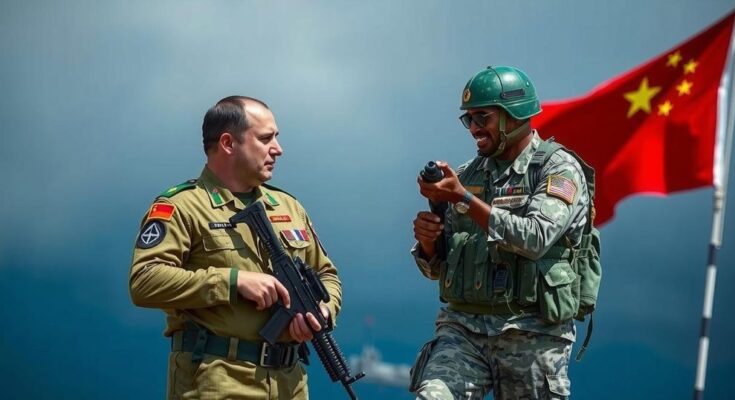Russia and China oppose a U.S.-led proposal to change the Kenya-led force in Haiti into a U.N. peacekeeping mission due to the prevailing violence and instability in the region. They argue that peacekeeping operations should only commence under stable conditions and call for immediate support for the existing force rather than transformation. Amidst escalating gang violence, the need for urgent assistance in Haiti remains critical.
At a United Nations Security Council meeting, Russia and China formally opposed a United States-led initiative aimed at transitioning the Kenya-led multinational force in Haiti into a U.N. peacekeeping mission. The opposition arises amidst escalating gang violence in Port-au-Prince, where gangs reportedly control 85% of the city. Despite the urgent need for peacekeeping support, both nations argue that the current conditions in Haiti do not permit the deployment of peacekeepers, emphasizing that such efforts should commence only in a stable environment.
The multinational force, intended to consist of 2,500 international police officers, has only approximately 430 personnel deployed, raising concerns over its capability to effectively address the gang violence. The funding for this mission has also been inadequate, with the U.N. trust fund critically under-resourced despite pledges. As the violence intensifies and the humanitarian needs increase, the situation has prompted urgent calls from Haiti’s leadership for a U.N. peacekeeping presence, which has met mixed international responses.
During the council meeting, it was highlighted that the Kenyan government supports the transformation of the multinational force into a U.N. mission, as joint operations have successfully secured essential infrastructure. However, they also noted the pressing need for additional deployments and resources to strengthen their operational effectiveness. The U.S. Deputy Ambassador urged the Security Council to endorse this transition in light of the increasing instability and to utilize existing U.N. resources for greater operational support.
Contrastingly, representatives from Russia and China argued against the proposed transformation, with Russia’s Deputy Ambassador stating, “Conditions on the ground in Haiti are not appropriate for U.N. peacekeepers.” They contend that deploying peacekeepers in such an environment may place them directly in harm’s way and distract from the need for immediate assistance and bolstered support for the multinational force currently in Haiti.
The Kenya-led multinational force was deployed in response to escalating gang violence in Haiti, particularly in Port-au-Prince, where gangs exert significant control over the area. The United States proposed transitioning this force into a formal U.N. peacekeeping mission to secure funding and enhance operational support, but this proposal has met with resistance from Russia and China. Their concerns revolve around the timing and appropriateness of deploying peacekeeping troops in a volatile environment, a point they stressed during the recent U.N. Security Council meeting.
In summary, Russia and China remain opposed to the U.S. initiative to convert the Kenya-led multinational force in Haiti into a U.N. peacekeeping mission. They assert that peacekeepers should only be deployed in stable conditions and emphasize the immediate need for financial and logistical support for the current force rather than seeking a transformation that could jeopardize their safety. The situation in Haiti remains dire, with urgent calls for assistance and a systematic approach to address the underlying violence and instability affecting the nation.
Original Source: www.newspressnow.com




